#I looked it up and the definition is wonky but I qualify under most definitions SO HELL YAH >:)
Explore tagged Tumblr posts
Note
Bill nye the science guy?
More like
uhhh
Lilybug the insect enthusiast
mic drop
(idk its 4 am and i've had a long night. My braincells are currently diminshing as i type this lol)
Hey! I love all science! ^w^ I am a Geoscientist now after all!
Learning more about the world is what us scientists do best :)
#i can call myself a scientist right? RIGHT????#I looked it up and the definition is wonky but I qualify under most definitions SO HELL YAH >:)#ask stuff#bread
101 notes
·
View notes
Note
(1) Hi loftec! i have a quick question (you don't have to answer if you don't want to!) - i'm working on my fic right now (probably never gonna post it tho, my writing is really bad, but anyway), in NTW ian has an EX (Jace? i think?) and if i'm correct he is a lot older than ian (i don't know if you ever gave us jace's age but i remember him being a lot older for some reason - maybe because mickey called him a creep and pedo at least 5 times 🤣 and it just stuck), anyway, my question is:
(2) do you have any "theory" of why ian dates older guys, and by older i mean OLDER (first Kash, then Ned), in fics he also dates "grandpas" - as mickey would call them 😂 (+ is Jace a "grandpa"? i was thinking all this time that he is, but now i'm not so sure 🤔🤔)
Hello friend!
First of all, I could talk for ages about how I think good/bad is a completely irrelevant metric when it comes to fic. I love writing fic and I mostly love the thing I am writing – I’m excited to develop the idea, to shape it into something that can be shared, and then to share it... but I still (often!) think my writing is bad. I just want to tell you that it does not matter if you feel like your writing is bad, I swear to you it isn’t. It’s maybe a first draft that you can work on, it’s maybe an idea that you can share with another person for feedback, maybe it’s just what’s on your mind right now and it is what it is and doesn’t have to be more than that.
I think one of the most wonderful things inherent in the way we publish and consume fic, is that quality is subjective to the point of irrelevant. You are the only part of your fic that really matters; if you want to write it, write it. If you want to post it, post it.
Posting fic is a really scary thing before you’ve tried it. Then it becomes the most exhilarating thing, while still also remaining very scary. And maybe it’s not for you, you really do not need to post your fic in order for it to have value. You’re writing! That’s fantastic! But if you find yourself excited for your fic even while you still feel like it might be bad, I want you to know you’re not alone in that feeling. And the feeling might be there for a reason, but don’t let it be there just to stop you.
Oh wow, I’ve gone off on a tangent, but! If you want me to ramble on about good vs bad, give some hot tips on posting fic, or want another pep talk, let me know. It is one of my most favourite things to talk about.
Onto the actual ask:
This is a very interesting question and something I know I thought about a lot a few years ago when I started writing about Ian. I will try to put words to these thoughts, with a couple of caveats. Under the cut!
Most of my characterisation is based on seasons 1-5, I have kept up to date with Ian and Mickey in the later seasons, but only by reading recaps and not by watching the show myself, so... yeah, I suppose there could be more insight there, especially maybe with Caleb and perhaps also Trevor, who both were to various extents positioned to “teach” Ian something; about relationships or about his community... but like I said, I never actually watched those seasons, so I’m not really qualified to speak on that.
So!
In NTW, Jace is definitely a lot older than Ian. When they met, Ian was in his early twenties and Jace was closer to forty, and also an authority figure.
I think an important thing to keep in mind is that we’ve only met Jace from Mickey’s unflattering POV, so far, and we only know about his and Ian’s relationship through what little Ian is willing to tell us. And Ian is maybe not the most reliable narrator when it comes to his past relationships, as I daresay most of us aren’t. Jace most certainly did a lot wrong when they were together, and he was twice Ian’s age and his teacher (which I suppose doesn’t have to mean anything bad, but you know... I don’t understand the draw of that kind of dynamic), but they were together for a reason, at some point. People are rarely all bad, or entirely to blame. Ian was drawn to Jace for many different reasons, and went back to him more than once for those same reasons. Tellingly, I’d wager that the age difference and the wonky power dynamic were not part of the reasons why Ian eventually ended it with Jace.
And the fact that he didn’t find an issue with being with someone twice his age, probably has a lot to do with Kash.
When Ian was with Kash, I think he thought they were equals. That he thought he was an adult because his parents had left him and his siblings to take care of themselves, to provide for their family. Ian worked and had a plan for the future, he had responsibilities and dealt with them. He was mature. (And as far as we know, he also topped in his sexual relationship with Kash, which I imagine a 14 year old guy could think of as definitive proof that other people don’t know what they’re talking about when/if they question his (fully illegal) relationship with a grown-ass adult man.) Before he hooks up with Mickey, we never see Ian interested in guys his own age. We see him have sex with one or two, but never anything beyond that. At this point – when Ian is still a teenager, convinced that he’s a grown-up – I imagine that he is looking for partners who make him feel like an adult, because this is what he thinks he is, who he thinks he has to be.
Roughly the same could probably be said about Ned, although at that point Ian has experienced something else with Mickey, and maybe also wants to go back to being with someone more “secure” and more “mature”. He does a shit job trying to find it with Ned, but Ned is also 99% there for his “must make Mickey jealous somehow” ploy, so I don’t know how much we can extrapolate from his “relationship” with that guy (as you might be able to tell, I don’t like that storyline very much, to the point where I have written Ned out entirely from NTW lol).
Ahh this got long and I don’t know if it’s at all interesting or answers your question! Hope there’s something there, let me know if there’s anything that didn’t make sense, and I’m sure I can be convinced to ramble on for a bit longer.
Thanks for asking! <3
11 notes
·
View notes
Text
Long-Post-No-One-Asked-For
Because I am Tired of seeing Mass Effect Andromeda hate. We’re gonna do an analysis of why its a beautiful successor to the Mass Effect Trilogy under the cut.
Oh also spoilers. Just.... In case that wasn’t clear....
Mass Effect Andromeda definitely has a more ME1 classic RPG vibe to it, so most comparisons will be drawn from ME1 to MEA. However... MEA has the best combat system and character customization of any Mass Effect game. This isn’t entirely fair to the trilogy since its a newer game. But the addition of the jump jets, evades, and the vertical integration of the maps? Stunning. The ability to not only research rare items from the shop, build them yourself and install modifications at creation? Masterstroke. You’re telling me I can start incorporating alien tech into Initiative tech? AND VICE VERSA? Brilliant. You’re character customization can impact other characters in your family/you can customize your twin? I love it!!!! Phenomenal addition to the story telling bits the trilogy was working with.
On to Ryder, and their relative youth n such. They’re a relatively young whippersnapper with family ties to the Alliance. All these are available as options to Shepard. Wishing you could have your colonist background instead? F!Ryder has experience working on digs and can be played to be estranged from her family, in a brilliant parallel to Liara from ME1. Want to be a hardass/bootlicker mission comes first type MC? Take either Ryder twin’s time in the Alliance Military and make them nostalgic about it. Make them angry Alec ruined their career. And here, we have a beautiful Ashley Williams parallel. Want a more tragic backstory yet? Just wait til you finish Habitat-7. If two dead(sort of!) parents and a comatose twin doesn’t strike your fancy, I’m not sure how much more Bioware could have done! Also, unlike ME1 they didn’t break the show-don’t-tell rule of story telling. Shepard’s backstory is buried in the codex, while Ryder’s is out in the open. Shepard themselves is startlingly young to take commando of the SR1 at only 29 years old, replacing Space-Dad Anderson who would’ve been about 46 y/o during the events of ME1. Much like Ryder, Shepard is thrown into a position of leadership that they’re only nominally qualified for (because what could possibly prepare you for the beacon and the Reapers?!) And now both Shepard and Ryder have something of incredibly value stuck inside their head. SAM and the beacon are the initial plot drivers for MEA and ME1 respectively.
You’re first mission, while the game is still teaching you the mechanics, you lose a squadmate, as well as several side characters casualties to a bewildering and alien threat. Bioware didn’t pull any punches with those opening scenes, but I would argue Andromeda does a better job of setting up the Pathfinder team so that it hurts when you lose Kirkland. Certainly I was more attached to the Pathfinder team than I was to the 212 (Sorry Ash! Wish y’all had gotten more screen time!) But it really does a good job setting Ryder to struggle with their command. We know Sole Survivor was traumatic enough to require a pysch write up for Shepard, and certainly losing two members of the Pathfinder team (one of which is your Dad) and with Hayes and Fischer as casualties while also having the worst possible first contact will set you off kilter mentally.
Now let’s get big picture, thematic if you will. Where the Trilogy has set up AI or technology (Reapers) as the climactic extinction-event-messianic-death-cult-supervillain, Andromeda has set up the perfection/genetics-obsessed Kett as your new extinction-event-messianic-death-cult-supervillain. Which is both timely given the resurgence of racist xenophobic rhetoric all round the world (yea political commentary!) but also a classic story telling reversal. Flip the script on the original trilogy, don’t just rehash the same old shit!
Both the Trilogy and Andromeda do a reasonably good job of muddying the moral-tale. Only some of the Geth wish to worship the Reapers and extinguish organic life. The Quarians certainly didn’t give the Geth a fair chance before trying to destroy their creations. Similarly, while the Initiative relies on the SAM’s and the Pathfinder team more broadly, the Fire Fighters are more than willing to destroy their own tool, even when survival is uncertain, based solely on Knight’s experience with Project Overlord. Racial tensions abound in all the Mass Effect games, but Andromeda frequently goes out of the way to expose them as out of date. While the Trilogy does occasionaly subvert racial stereotypes Andromeda has a laundry list of characters who do so. Vetra Nyx, Nakmor Kesh, Sarissa Theris, Nilken Rensus, just off the top of my head. Kallo Jath is a Salarian haunted by the past, and Peebee is finally a good look at a less stoic Asari Maiden. Cora Harper is a great example of a xenophilic human, a stark contrast to the Ashley from ME1 (thank god that girl got some character development. her banter on the citadel doesn’t win her many fans...)
I’ll also never understand why people complained about the update to the Paragon/Renegade system. Bioware has long fallen into the trap of the false dichotomy, especially in their sci-fi games. With the Star Wars games, it can be forgiven because George Lucas and Disney have positioned the Lightside and Darkside as comical caricatures of a black and white morality. Space Opera. We get it. But finally getting and update to that model? I know Americans are brainwashed into binary choice by our two-party system, but surely gamers from parliamentary governments should be able to see that four directions is better than two? Only complaint is they have little in-game impact. And you know what, you got me there. At least ME1 provides in-game rewards for character behavior.
So when some butt-hurt fan says they still don’t like Mass Effect Andromeda, what they’re really saying is they hate how it defied their expectations. I know it exceeded mine. Bioware set out to make a spiritual successor to the Trilogy and I’ll be damned if Andromeda isn’t my favorite Mass Effect game yet. I really hope we get a second game in Andromeda. All of this is not to say I support crunch in the game development sector or that a AAA game released by one of the largest game developers should have visual glitches upon release. If you charge AAA prices, it shouldn’t need a patch for the VFX. I do think people who make that criticism overlook how wonky some of the old graphics in ME1-2 were, but I totally agree we should hold EA at least to higher standards on game release. The whole game industry dropping the ball (I’m looking at you Bethesda) doesn’t excuse it.
#Mass Effect#Mass Effect Andromeda#Retrospective#rant#long read#I give it at least a 5/7#;)#but no actually I love this game and I wish it got less hate
13 notes
·
View notes
Note
So I would love to progress on my art and try comics any tips? ÙwÚ
Hi! I’m so sorry about the late reply. D: I hope you don’t mind if I take this opportunity to address all the anon messages about how we can improve as artists.
I have a tough time answering this question because there is so much I need to learn. I’m super flattered that some of you feel that my art is good enough to ask me for tips, first of all!! So thank you, guys. <3
It’s a struggle because I only recently started taking up art again. So I’ve forgotten a lot of the things. So I’m probably not the best person to ask about this.
I used to draw all the time as a kid, but after high school, I stopped drawing. I stopped drawing for almost a decade, pretty much. I really regret it. I feel like I could have come such a long way if I did keep going. My parents really discouraged me from pursuing art, even just as a hobby, too. Even when I left home (I’m back now tho), my ex-spouse, greatly discouraged me from doing art too. I mean, “proper” art. They told me my art wasn’t “real art” because it’s not studio art, it’s “sellout” art, like anime/cartoons/fanart. I had even worse self-esteem as I do now, and I listened to them and gave up. I convinced myself I hated drawing.
Please don’t deny yourself things that make you feel engaged and connected. If drawing makes you feel good, if it makes you not realize how much time has passed and makes you feel like you’re accomplishing things, even little by little, please don’t stop. Even if you suffer from depression and feel like things like this are pointless, remember that just doing things in general will help you. Drawing is an awesome way to get into the flow state. To me personally, it’s almost like a meditative state and I find it helpful in dealing with chronic pain and mental health issues.
Anyways, I’ll try to compile some advice sort of things.
ART IN GENERAL
1. Draw what you enjoy! I think the most important thing is to draw what you like. It’s okay if it’s “dumb stuff”. Draw your favorite characters or pairings from your favorite tv shows if that tickles your fancy! You’re much more likely to be spending more time drawing if you’re drawing stuff you like. And as long as you’re drawing, you’re improving. (But still, challenge yourself and get out of your comfort zone!)
Especially for those of you who are planning to pursue art as a career, it’s essential that you don’t view practicing art as a chore.
2. Draw from life. If you really want to take your art to the next level, drawing from life is vital! I think many of us have come across artists who are just amazing, but there are things that look a little “off”. For example, the anatomy doesn’t look quite right, or the perspective is a little wonky. Things like that can be a tell that they’ve learned to draw from other people’s art rather than from life. Or just haven’t practiced the basics enough. (My art isn’t amazing or anything close to that lmao, but it definitely suffers from this. I need lots of life drawing practice.)
There is nothing wrong with learning from your favorite artists, but to really train your “artist’s eye”, you need to strip away all the stylistic choices and go back to the basics. Training that Eye is one of the most crucial things you could do as an artist.
Just take a piece of paper, a pencil and start drawing what you see. If you can, take figure drawing classes at your local community college, or draw the animals you see at the zoo. Sit on a bench and draw the scenery in front of you. Over time, you’ll start to recognize common patterns, simplify/think of things in terms of lines and shapes.

If you can’t afford a class or have the ability to go outside easily, drawing from photographs can be the next best thing. (See the Resources below for an online figure drawing tool.) I’m not experienced enough to definitively say why this isn’t the #1 idea, but from what I hear, there are things that you’ll miss out on, such as subtle shifts in shadows, colors, and other things that will happen from small movements in pose changes, a cloud moving, or whatever else. A different “feel”, if you will.
With the digital art boom, a lot of artists are learning how to do cool digital effects and fancy things, but forgoing basic anatomy, perspective, shading, etc. Which is all fine if you’re just having fun, but isn’t the best idea if you’re really serious about improving. Practice the fundamentals!
(If you have been dreaming about CalArts at one point like I did when I was in high school, one advice I came across from everyone who went there was to draw from life. All the time. It’s not an answer I expected from people who draw funny looking characters all day. You mean all these people who draw such simplified cartoon people and animals can actually draw like masters? Perfectly rendered bowls of fruit? I didn’t realize how much work goes into animating simple characters.)
3. Put in the time.
It’s really easy to get suckered into just watching “how to improve” videos all day and thinking about improving. Watching how other artists work is an important learning tool, but you’ll never actually make progress if you aren’t practicing.
Sometimes, the best thing to do is to not think about it. Just do it.

It’s like when I’m spending a whole lotta time thinking about getting physically fit than just, you know.. just doing it. “Tomorrow for sure.”
It may seem like it’s worthless, but doing those lame 5 push-ups a day instead of the 20-minute workout you wanted to put in, is better than nothing at all. You are making progress, no matter how small it may seem.
Make it a habit to practice every day. That way, you don’t even hesitate. It’s as automatic as brushing your teeth.
All the artists you see who have fantastic, awe-inspiring art may seem like Unreachable Gods sometimes, but those artists didn’t just pull that out of their ass one day. They put in hours and hours and hours of work. Let’s not disrespect other artists by ignoring that and chalking it up to “talent”. No one is born with an innate ability to draw. WE can get there too if we practice!
I want to get good enough to draw the things I have in my head one day!
Some resources that may be helpful:
Draw a Box - This is a site for free lessons for absolute beginners. Look under “Lessons” to learn. The creator of the site is the mod for r/ArtFundamentals. You can post your work there to get critiqued.
Check out Proko’s videos on gesture drawing, art fundamentals, etc. Daily routines of successful artists.
Use this site to practice figure drawing, gesture drawing - Set aside some time to practice drawing people and animals every day. Start trying to see things as lines, shapes, and go big. Don’t get too caught up in the details, and tiny drawings. Learning to draw fast (not draw FAST as in speed, but as in capture the gesture in a post, the “feel” of the movement) will force you to do this more, and with more experience, make your figures less stiff looking.
And it’s okay if you’re aren’t good at it. You’ll make loads and loads of shit drawings until you can get decent.
I’m most definitely in this stage right now, trying to train my Artist’s Eye. As in, I can’t just draw a figure from memory. I don’t really know what goes where without a reference, or how they move, etc. You can tell by how stiff my drawings look.
Lulusketches How to Improve video - She has similar advice, but her point about looking at “Art of” books something I have come across from multiple professional artists; Her advice on worrying about finding your own “style” is really good too. Do challenges like she said!
Her playlist of art tutorials & advice is great. They’re short and sweet. Her beginner digital art tutorial got me started on digital art (the one with Ginny Weasley).
Not free ($30 a month), but these online Schoolism classes look helpful. It’s run by Bobbie Chiu. I saw some great reviews and I want to try them someday. They’re taught by artists in the animation/film industry. But you gotta have a basic grasp on digital art/photoshop for many of the classes, I think? I’m not 100% sure. They’re pre-recorded video lessons.
You can pay more for feedback from the teachers, but you can also just use it as a self-learning guide.
This drawing faces from any angle video was pretty helpful for me. The artist has loads of other tutorials.
COMICS
I don’t feel qualified enough to give much advice on comics. I mean, I don’t even draw the lines for the boxes, haha.. However, these comic books are basically required reading for some courses:
Scott McCloud’s Understanding Comics & Making Comics.
I can’t remember which one it is that I read, I think it was Making Comics? But wow, if I remember correctly, it was FULL of really useful things about how to make effective comics. I lost the book while moving years ago, but it was FANTASTIC learning material. I loved every panel of it.
He talks about everything from perspective, placement of characters, speech bubbles, how big panels should be, etc.
If you can afford it, get a used one and start reading! Even if you don’t want to make comics just yet, it’s super interesting.
#art#comics#art reference#art resources#asks#text#okay i fixed some of the links now#added better stuff
259 notes
·
View notes
Text
Definitive Ranking of Book 4 Episodes, #2/13
2. 4x13 The Last Stand
Kuvira tears off her arm. Mako makes a Heroic Sacrifice and no one will heal him. Korra and Kuvira fight, until Korra freakin’ bends pure energy, rips apart the city, and demonstrates her growth in one quick spirit world conversation. Hasook fulfills his clarinetist destiny. We get the most ambiguous ending everrrrr.
You know, after going back through this whole season, I’m realizing that there were a lot of flaws with Book 4. A lot. It’s not to the point where I feel this episode ranking as second highest is unearned, but it is making really wonder about “what would this have looked like had Bryke been given more time?”
The thing is, with this episode, the emotional beats are nearly perfect for Korra. And that’s really what matters, given that the show is...well...the legend of *her*. Even for most other characters, this conclusion was (dare I say it?) dramatically satisfying. Thematically satisfying, too.
But at the same time, what didn’t work is only more and more glaring with each revisit, and especially after thinking through it.
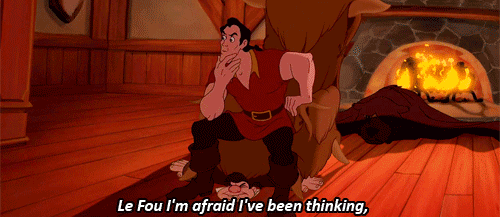
Kuvira is probably the hardest character to reconcile, because she’s the primary antagonist, and yet up until Korra dropped the “oh you’re an orphan” truth-bomb that explained ~~all~~ of Kuvira’s actions, there was every indication that her guiding motivation was much more about her perceived rejection by Suyin, or a desperation to prove her wrong, or a mentor’s fall from grace when an inherent hypocrisy was shown...
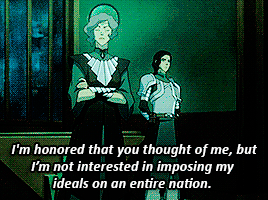
Honestly, from just the perspective of Kuvira’s arc, dismissing everything as “you were sad about your parents (who you never talked about once) leaving you with the creepy thought-policing matriarch and you didn’t want to ditch the EK in the same way” is almost insulting. Kuvira like...made compelling points in the Suyin-filtered flashback about why Su should accept Raiko and Tenzin’s offer, and it seemed to be coming from a place of pure pragmatism, not compensation for abandonment or a way of gaining control. Actually, she framed it about sharing prosperity:
Kuvira: Suyin, I know this isn't my place, but I think you should do this. Zaofu has always been a beacon of modern progress, and now you can share that with everyone.
Suyin: What would you have me do? March into Ba Sing Se with an army? We'd be seen as conquerors and greeted with nothing but war.
Kuvira: There are already wars. The Earth Queen nearly destroyed our nation. This is our opportunity to change things.
Also, fun fact: Suyin didn’t even tell Korra that Kuvira was an orphan; she barely even implied it.
Korra: How did things get so bad between you and Kuvira? I thought she was your protégé.
Suyin: She was more than that. She was like a daughter to me. I took her in when she was eight years old and nourished her talents. Kuvira was smart, a natural leader, and quickly rose through the ranks. I saw myself in her.
Like, this could have meant anything. Maybe she took her into her School of Metalbending Dancing and Narcissism. Maybe this is a nitpick, but it just amuses me if there was some version of this scene where Korra is like “it must have been so hard being an orphan,” and Kuvira goes, “...wtf my parents are FINE.”
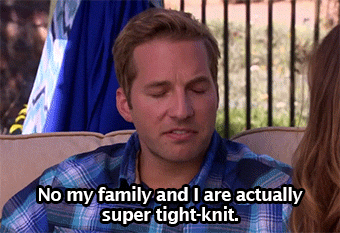
Back the main point here, the difficulty in parsing out Kuvira’s guiding motivations and meaning of her own arc is not made better by the fact that her political position and military campaign were incredibly poorly defined. This is nothing new for Bryke, but with regard to this episode specifically, there’s still the question of why Kuvira was even interested in reclaiming UR land when she was supposedly just a technocrat that opposed the Earth Queen’s unjust rule, and had spent a painstaking amount of time laying down tracks to connect the two nations in what seemed like a cooperative measure and to truly bring the EK up to speed with the rest of the world. Was storming Republic City always her plan? Would she have been able to without the super laser that she didn’t know was being invented (Varrick was just looking for clean energy, remember)? After successfully taking Republic City, was she going to lock up every citizen there not of EK origin?
The general idea is that she was supposed to be earnestly committed to restoring stability in the Earth Kingdom, while also pushing forth innovation, and that when Korra pointed out how horrible and out-of-balance she was, it was a comeuppance and reality slap. I guess in this respect, the broader strokes make sense, but then there was so much that seemed so personally motivated, like...everything to do with Zaofu (she even made a point of saying “when I return I’ll be greeted with open arms), and then wrecking all of Republic City.
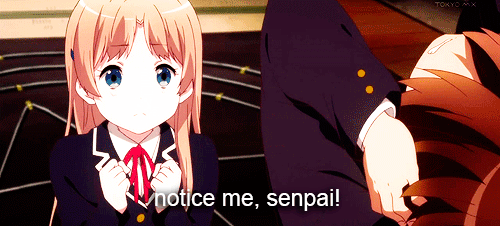
Even ignoring motivations, there’s logistics, because Kuvira’s disappearing army (and the disappearing United Forces) was still very much evident here, especially since mecha tank officers came clomping back into view at the end, and she needed to instruct them to stand-down. It kind of makes me giggle to think that Varrick powered down these suits, and the morons just lay on the ground helplessly until they were up and running again. But there were also all those ground troops and shit, so...
Oh yeah, and Raiko formally surrendered. There should have been an entire platoon sent to the island as soon as Kuvira realized Baatar had been captured while traveling there.
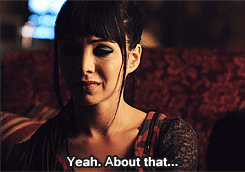
None of this is a specific issue to “The Last Stand,” but it does make the resolution feel a little...convenient. As though all these things were just dismissed and swept under the rug. This is best exemplified in Suyin’s line as a response to Kuvira’s apology, where she goes, “you’re going to answer for everything you’ve done!” Like, that didn’t even follow what Kuvira had said! Though there’s also a chance that this was a place-holder line they never bothered to change (or ran out of time to change). It’s not the only one with this vibe.
At the end of the day, Kuvira worked fine for Korra. But the way she had been scripted herself, there was really no telling how she’d react to a given situation until after the fact. I could have seen her, stirring from the rubble, having the same exact spirit world conversation with Korra, rather than running away to find Chekhov’s very literal gun. She trashed an entire fucking city and nearly died already just with Mega Maid’s explosion, after all.
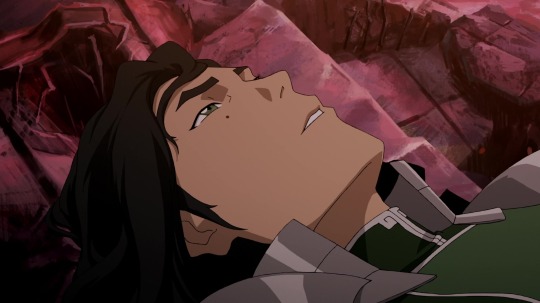
Most of the other challenges of this episode have to do with the wrap party, because it was pretty clear that Bryke had a case of “we have X minutes to conclude all of this.” Enter bizarre conversation after bizarre conversation.
It’s not exactly a secret that I’m currently writing on a fic that tries to make sense of “why the hell does this wedding feel as though it is simultaneously the day after the fight, and two months down the road?” Word of God is that the wedding is 2 weeks later, which may or may not have been made up by Mike on the spot. But it’s just all so wonky. Korra is acting as though she hasn’t talked to anyone, Wu and Mako certainly haven’t seen each other since the evacuation, Tenzin only just talked to Raiko, and yet Zhurrick planned an entire wedding and somehow world leaders were able to travel to the still utterly destroyed city to enjoy it.
It’s WONKY, I’m telling you. The worst case offender?

This is a terrible fucking idea. I get that it’s a Y7 American show and we have to be pro ~~democracy~~ as a general concept, but the logistics behind it make no sense. I suppose in the context of Wu’s arc, him stepping aside because he doesn’t feel qualified is fitting. Granted, I thought the whole “you were calm during the evacuation and also badger moles like you” stuff was to show how he does have leadership potential, so long as he plays to his strengths and allows those more informed than him to take the lead on other matters. But I suppose we can say it was part of a bigger picture: Wu learning to be less of an entitled asshole. He pushed himself and stepped up when the world needed him to, but in the end “sometimes a good evacuation is its own reward.” Nice.
Now go and create a horrible panic by tossing the EK’s political and legal structures out the window!
The Mako/Korra conversation was a very nice endcap to Mako’s season-long arc, and the series long relationship between these two characters. They were incompatible as romantic partners, but Mako found meaning in their platonic friendship, looking to Korra as inspiration to be more selfless. It’s just nice. And it’s nice to see exes being nice and not jealous or still hurt or pining or whatnot. Nice.

That said, Wu’s role in Mako’s arc is a headscratcher. Mako definitely had an influence on him, but the other way around...I’ve got nothin’. Unless we consider Wuko a possibility, because IT IS THERE, DAMNIT. Except, I really don’t think Bryke meant for it to be there. Which means that Mako played a bit more of a supporting role for Wu than the other way around. Wu had diddly squat to do with Mako feeling inspired and self-sacrificial...that was a decision Mako reached inside Mega Maid as a result of watching a clip show about his relationship with Korra.
And yeah, let’s actually talk about that moment, because it was probably the second most emotional point of the episode. For those who don’t know, it’s also the point where I realized, at 5:50 in the morning, that I was going to start bawling in the middle of Planet Fitness if I stayed, so I cut that short and went home to finish out the episode.
It was touching, even if Bolin’s “This isn't the time to prove how awesome you are. I already know how awesome you are... you're awesome.” lines were incredibly odd. However... Looking back, this was probably the dumbest thing Mako could have done in this moment.
The weapon was disabled (he knew Su and Lin were taking care of that), and Korra was in the “head” having a fight to the death. There was no pressing need to power down Mega Maid at that point (Kuvira initiated lockdown as soon as they got in, actually), and the only thing he knew was that he could probably get it to explode. With everyone still inside. All things considered, how Mako didn’t just kill everyone inside the tank is beyond me. How Mako didn’t die is equally beyond me, cause dude got shot squarely in the chest. I mean yes, Bolin came back for him (where did he even dump the other bodies? The legs?), but Mako has a heart and stuff.
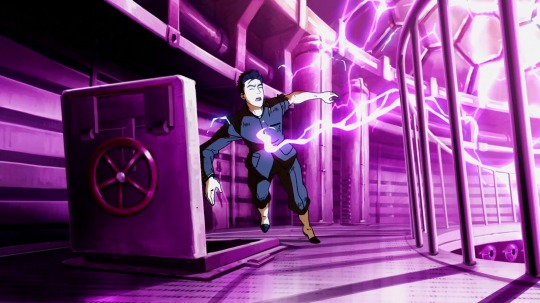
I don’t want to detract from the message of “Mako is an incredibly selfless hero,” but the logistics get in the way. It’s like Bryke wanted him to have this moment, but they didn’t take the time to figure out a realistic way it could unfold, so it just happened. Which is jarring, especially since this immediately followed Hiroshi’s sacrifice from the previous episode. Snaps for Mako, but 10 points from Brykendor for the contrivance.
Also as a side note: poor Bolin, this episode. I mean yes, he’s in a good place, and he got to marry Zhurrick (I can confirm: officiating a wedding is mad fun), but the dude didn’t even get a Conversation of Significance with anyone. Needless to say I’m going to be fixing that with my final chapter...

Let’s just round out the Krew then and discuss Asami. And I 👏👏don’t👏👏fucking👏👏know👏👏 what to do with her.
I mean, you know what Asami means to me as a character at this point. And Korrasami. But going back through and watching this season, there’s a few things that are blindingly clear.
1. The scripting is bizarre. Not just for Asami—across the board. There are lines that feel outright unedited. For instance:
“When the queen fell, and everyone was asking you to help keep the Earth Kingdom from falling apart, all you wanted to do was hide in Zaofu, and let others deal with the consequences.”
It’s not as though lines like that don’t work, but it’s the kind of thing where if that were in fic I was beta-reading, I’d highlight “fell” and “falling” so the author would know to take out one of the repetitive phrases.
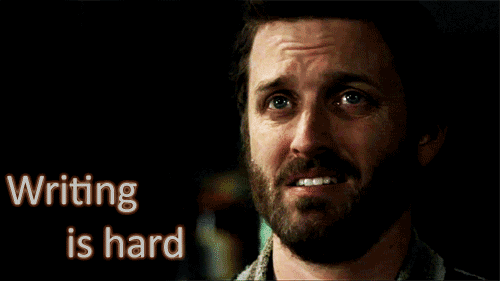
For characters with a lot of lines, the lack of polish can be overlooked, for the most part. For Asami, who had an incredibly limited screen presence during Book 4, things stick out.
2. Seychelle Gabriel’s voice acting was...different. It wasn’t bad, but some of her lines had a certain stilted quality to them. I’ve actually noticed that with just about every character in Book 4 that wasn’t Varrick or Bolin (that’s just John Michael Higgins and PJ Byrne falling back on their comedic chops), with a big exception in Korra. I sort of think Janet Varney didn’t settle into a consistent voice for her *until* Book 4, but that’s a whole other story, and yes, deeply subjective.
The best example I can point to for Gabriel is the way she delivers, “Thank you. I'm just glad I was able to forgive him.” It just had this awkwardness about it, and a good thing too, since I’m 95% certain that’s what spawned @progmanx’s entire fic, as well as my own views on her characterization (oh hey, we’re of one mind with that).

3. There really could have been more to Korrasami. Even with Russian TV restrictions. But I already talked about in my “Reunion” piece, so I won’t rehash here.
4. Asami’s scripting was pure *convenience*. I touch on it here for “Enemy at the Gates” and here for “Day of Colossus.” But it’s not really hard to recap.
Asami needs to open the lines of communication to her dad, so she does, and it is wonderfully, realistically hard on her. Then in a ridiculous scene, she spots a happy father and daughter, and decides she wants to work to forgive the man who tried to fucking kill her. We can assume she’s feeling conflicted about it because she snaps at Korra over it, but really, we have to just assume, because this shit is never talked about on-screen. Then Hiroshi pops in to save the day with his oddly specific technical knowledge of stuff he wasn’t working on. Then Asami tells him that she loves him before they go into a flying mecha suit to battle potentially to the death, and then Hiroshi dies.

And yes, I’ve talked a lot about what an internal character Asami is, so it would have just been odd if she suddenly started expositing on why she was feeling the way she did, but at the same time... When *did* she decide to forgive him? Was it just because he was willing to save the city? Does she even know if he’s changed his opinion of benders, or if he just regrets not having her in her life? Does she regret not seeing him sooner? Did she ever READ THOSE DAMN LETTERS?
So for her to sit her ass down next to Korra and say that she’s super sad but glad she forgave him... Well yeah, of course she’s sad. But she’d probably also be confused and conflicted and angry and guilty and a million other things just by how inherently fucked up this situation is. The last time she and her dad were in a mecha suit at the same time, he TRIED TO KILL HER. This isn’t hyperbole. He also saved the city from being destroyed *this time*, despite being the man who bombed it before. You see what I’m saying???
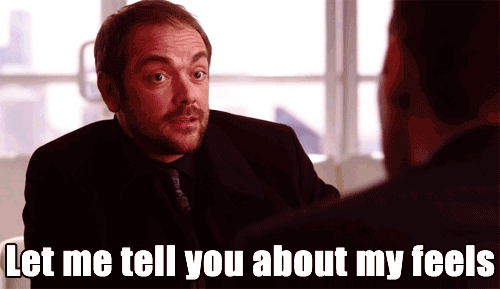
I think this is coming at a bad time, because I am working over and beyond to make sense of Asami’s headspace during this specific point in the story right now with ‘Half the Pieces’. I even gave her and Hiroshi another pai sho match so they could talk this shit over, and am kind of getting at the idea of her forgiving him as more of like, she really wants to have forgiven him and to have that closure after three years of incredible pain relating to him. But for what we got on our screens, it feels rushed, there’s just no other way around it. Rushed and simplified.
The most frustrating thing about Asami’s character is her wasted potential—the way they could have been using her as a foil to Korra so much sooner, the way her unique position as an industrialist went largely untouched, the way there is so much packed into her and given a little space, she will come and wallop you with a bag of feels (“you tainted our past and destroyed our future together”).
Yes, she’s in a support role, and I’m not advocating her being foregrounded over anyone else on the Krew, and certainly not over Tenzin. But keep in mind, this was the season that gave a very complete and detailed arc to Varrick and Wu, while also pushing Kuvira & the Beifong Family Drama as the main tension. So excuse me for just a little annoyance with what could have been.
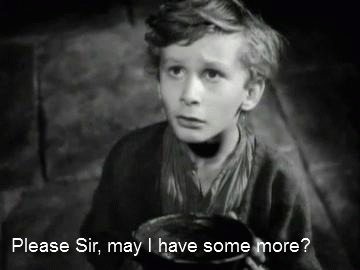
What *was* for Asami here was...fine. It’s not like I can’t remember what her conversation with Korra felt like the first time, or how could it felt that for once in her craptastic life, she was getting to be happy for a little. And for Korra too, realizing she had been disconnected for too long, realizing through her letters and the distance that she was in love, realizing she can take time for herself—it just all made for a beautiful moment, even if I do think that it felt a tad clipped. Given how much ground Bryke needed to cover here, it’s not shocking.
As a last note before I get to Korra and begin explaining why this episode is #2, I want to briefly touch on Tenzin. He was simply not a major player in this season, and I guess that’s fine. His relationship to Korra was in focus for Book 2, with her becoming *her own Avatar* at the end, and then his relationship to his daughter and the Air Nation at large was Book 3. I don’t feel like anything was incomplete with Tenzin here on a larger scale, though it was a notable decision. I wonder if Book 4 had been given another pass, would there have been a more imaginative way to utilize his character?
I think that may have detracted from the impact of his final conversation with Korra, too. Or maybe that’s why it almost felt like it had bizarrely romantic undertones for a second, because it was hard to have a handle on where *they* were at with how they related to each other. Also he said the phrase “big bumpy ride” so...

And that conversation was the most, “let’s wrap up this Y7 show yup yup” that fell victim to extremely unfortunate wording. The idea was to show that Korra had found meaning in what she had been through, harkening back to Katara’s remark that Aang “chose to find meaning in his suffering and eventually found peace.” What Katara did not say was that Aang NEEDED TO EXPERIENCE THE GENOCIDE TO FIND PEACE. Because who the hell would say something like that.

There are negative implications of Korra saying she “needed” to suffer to be more compassionate, especially since compassion was never a department she was lacking in before. However, as a result of what she went through her approaches to situations did change, and her “go-to” mode of operation, altered. We saw her trying to fight against the “old me” in Zaofu, and that was simply ineffective. In this final chapter, we saw her take action as she needed to, only to finally talk the antagonist down in the end. It wasn’t an increase in compassion, but it was a result of her empathizing over the fear of being vulnerable—a fear we’ve seen Korra struggle with since the start.
“I may not have been an orphan, but believe me, I understand what it feels like to be afraid. [Sits down so she is at eye level with Kuvira.] After I was poisoned, I would have done anything to feel in control.”
Look, there’s a wonderful narrative here, and it just...fell over itself on the way to our screens, and that’s unfortunate. Because it would have required so little to fix.

If you’ll allow myself and @progmanx to be hubristic here, we actually did rewrite this for my upcoming chapter (not finalized yet, but it will be something along these lines):
“I know I was in a pretty dark place after I was poisoned; all I wanted to do was feel like myself again. And I think it took seeing Kuvira being so angry and scared of letting everyone down, just like I used to be, for me to finally realize what I already knew: I can never just go back and to being that person again, and I don’t want to be. I’ve seen now what fear can do and what it can drive people to...what it drove me to do, even if it didn’t hurt as many people. That’s a part of me, and there’s no undoing it. I don’t think I want to undo it, either. Your mom told me that Aang found meaning in his suffering. I guess if I’ve found mine, that’s it. We’re all afraid sometimes, but that doesn’t make us weak. In fact, it’s what makes us stronger.”
It’s almost as if I like A Song of Ice and Fire, or something.
Would a more diverse writers’ room have resulted in a different end line? Who can say. But this at least demonstrates why a diversity of voices and a willingness to think through the implications (something Bryke aren’t incapable of) is helpful.
If you’ve been paying attention, you’ll notice that #1 on this list is going to be “Korra Alone.” So I’m going to save fully gushing about Korra’s healing arc there.
But what I will say is that “The Last Stand” brought the series to a thematically apt, and rather uplifting conclusion. The season was about balance, but you could just as easily say that the series was too. This also tapped into “light in the dark,” only Book 4 took the time to explore that darkness rather than blow by it.

Seeing Korra so...at peace, was truly remarkable. We’ve seen her so insecure at many points in the series, and it really was just heartening to watch her be so decisive, so proactive, and also so *effective*, even if that meant switching approaches on the fly or, idk, leaping in front of a giant cannon and ripping open a hole in the universe and by doing so being so impressive that there was an instantly humbling effect on the megalomaniacal dictator to the point where Korra was able to talk her down with words alone.
It kind of makes me laugh, thinking of some of the Discourse™ as the finale ended: that Korra was “neutered” or “tamed.” Yeah those are great adjectives to attach to someone who threw themselves in front of a firing spirit cannon on an instinct. What we saw is a deeply matured and strategic Korra.
Remember, she was the over-eager hero who was told that the world didn’t need her. Her narrative was never going to be “I saved the day therefore I am,” but rather “Who am I when I’m not saving the day, and does that matter?”
Yes.
As for Korra, the world’s most powerful bender/spiritual leader of the masses/ with her ancient wisdom and sheltered upbringing ending up with the wealthy nonbending driver of modern innovation from the world’s biggest metropolis, well... that’s just the perfect endcap to the all-subtle balance theme. Nice.

Edit: 4/11/2017:
This entire piece wound up a little more focused on negatives than I wanted, so please read this reblog commentary for clarification/a few more notes on what was really great here.
#13: 4x08 “Remembrances”
#12: 4x11 “Kuvira’s Gambit”
#11: 4x09 “Beyond the Wilds”
#10: 4x07 “Reunion”
#9: 4x06 The “Battle of Zaofu”
#8. 4x12 “Day of Colossus”
#7 4x01 “After All These Years”
#6 4x03 “The Coronation”
#5 4x04 “The Calling”
#4 4x05 “Enemy at the Gates”
#3 4x10 “Operation Beifong”
Book 2 ranking/essays found here
55 notes
·
View notes
Text
Better Than Other Plans Or Better Than Nothing? Trump’s Claim About ‘Affordable’ Options
“Our new plans are up to 60% less expensive and better.”
President Donald Trump in his State of the Union address to Congress, Feb. 4, 2020
In his wide-ranging State of the Union address, President Donald Trump returned to a favorite theme: the cost of health insurance.
This story was produced in partnership with PolitiFact.
This story can be republished for free (details).
He cited the high cost of premiums for people who buy their coverage through the Affordable Care Act marketplaces and said his administration has provided new, less costly coverage.
“I moved quickly to provide affordable alternatives. Our new plans are up to 60% less expensive and better,” Trump told the lawmakers gathered at the Capitol.
So we wondered, to which new alternatives was he referring? We reached out to the White House to ask.
Spokesperson Adam Kennedy responded that the president was talking about short-term, limited-duration plans. But that got us thinking: Are they really less expensive and better? Or simply better than nothing?
First, Are They New?
They are not. As background, short-term insurance plans have been around for decades in various iterations and are generally considered a stopgap solution for people between jobs or attending school. They provide some protections, usually paying a percentage of hospital and doctor bills after the policyholder meets a deductible.
But they’ve always been a bit controversial.
Unlike the ACA plans now available, short-term plans can bar people with health conditions from enrolling or exclude coverage for specific conditions or treatments. They also offer fewer benefits — meaning they are not required to comply with the health law’s mandated essential benefits requirement.
Email Sign-Up
Subscribe to KHN’s free Morning Briefing.
Sign Up
Please confirm your email address below:
Sign Up
So, for example, they don’t have to cover prescription drugs, or mental health services or substance abuse treatment — and many don’t. In addition, they can set annual or lifetime caps on benefits. Almost all exclude maternity care.
If a person develops a health condition during the coverage term, insurers can look through their medical records and, in some cases, retroactively cancel the plans — or refuse to renew the coverage at the end of the policy’s term.
The Obama administration restricted these policies, which still cannot be sold on the ACA marketplaces and do not qualify for subsidies, to a maximum coverage period of 90 days, down from the 364 days that applied previously.
The Trump administration reversed that time-limit restriction in 2018 and built on it by allowing insurers to offer policies renewable for up to three years.
Officials, including Health and Human Services Secretary Alex Azar, said at the time that these short-term plans provide an alternative but aren’t a good fit for everyone.
For instance, the Trump rules require the policies to carry a warning that they aren’t “required to comply with federal requirements for health insurance.” They also state that consumers should “check the policy carefully to make sure you understand what the policy does and doesn’t cover.”
Are These Plans Less Expensive?
The White House pointed us toward a January 2019 report produced by the Congressional Budget Office and the Joint Committee on Taxation as the source for the president’s assertion that these plans are 60% less expensive.
It quickly becomes clear that the analysis is very wonky and complex.
After all, it’s not easy to project what benefits insurers will include in short-term plans or what they will charge individuals, which can vary based on their health. Even the analysts called the estimating process “challenging.”
When it came right down to it, they hedged: Short-term plans are likely cheaper than the lowest-cost ACA plan for some consumers, but more expensive for others. For example, people who get a federal tax credit to buy ACA-compliant insurance or those who are older or less healthy would likely pay more in premiums for a traditional short-term plan, the analysts said.
Conversely, those without subsidies, especially younger or healthier consumers, might pay as much as 60% less than they would for the lowest-cost plan through the ACA, the analysis concluded. Another study, not cited by the White House but done by the conservative Manhattan Institute, also listed caveats, but more robustly defended the plans as less expensive. Premiums for short-term plans are lower — in some cases, almost half the cost — of ACA plans, it concluded.
But critics put these price tags in context. “I don’t have a reason to suspect the 60% is wrong if they’re lining them up against ACA plans, but if you’re a health plan that doesn’t cover much, it’s easy enough to offer a cheap premium,” said Sabrina Corlette, research professor and co-director of the Center on Health Insurance Reforms at Georgetown University.
So That Gets To The Question, Are They Better?
The consensus is that the coverage short-term plans provide is not better than that of ACA plans. But it could be better than going without insurance entirely.
“Why not throw another option out there?” said Doug Badger, senior fellow at the conservative Galen Institute. “You might say this plan isn’t as good as that plan, but we may both agree that having this one is better than nothing.”
He said that should be a decision made by consumers, who can weigh the pros and cons: “They know their circumstances and risk tolerance.”.
Still, it’s a gamble, as no one knows what health conditions might befall them. A plan that doesn’t cover prescription drugs may be fine the first month, but if a serious illness crops up, it suddenly has unexpected costs.
Others also note that short-term plans may have wider networks of doctors and hospitals than some ACA plans, giving consumers more options.
“In Texas, for example, you cannot buy an ACA plan that covers MD Anderson,” the cancer center of the University of Texas, said Brian Blase, CEO of Blase Policy Strategies. Blase has advised Trump on his health policy efforts. “The only way you can have such a plan that includes MD Anderson — unless you have employer coverage — is in a short-term plan.”
Sources:
Email response from Adam Kennedy, spokesperson, Executive Office of the President, Feb. 5, 2020
Telephone interview with Sabrina Corlette, research professor and co-director of the Center on Health Insurance Reforms at Georgetown University, Feb. 5, 2020
Telephone interview with Tom Miller, resident fellow at the American Enterprise Institute, Feb. 5, 2020
Telephone interview with Brian Blase, CEO of Blase Policy Strategies, Feb. 5, 2020
Telephone interview with Doug Badger, senior fellow at the Galen Institute, Feb. 5, 2020
Congressional Budget Office, “How CBO and JCT Analyzed Coverage Effects of New Rules for Association Health Plans and Short-Term Plans,” January 2019
Kaiser Health News, “Trump Administration Loosens Restrictions On Short-Term Health Plans,” Aug. 1, 2018
Federal Register, “Short-Term, Limited-Duration Insurance,” Aug. 3, 2018
Commonwealth Fund, “States Step Up to Protect Insurance Markets and Consumers from Short-Term Health Plans,” May 2, 2019
FierceHealthcare, “Azar touts agency progress on growing insurance options,” Feb. 28, 2019
Manhattan Institute, “Renewable Term Health Insurance: Better Coverage Than Obamacare,” May 16, 2019
Commonwealth Fund, “Short Term Health Plan Gaps and Limits Leave People at Risk,” Oct. 20, 2018
Again, nice to have a wide network. But there’s a conundrum. Someone with cancer — attracted to a network because it includes MD Anderson — would be rejected by most short-term plans.
That ability to reject applicants — or seriously limit coverage of their preexisting conditions — helps keep premiums down.
But those are also the main reasons experts say the plans are not better than those offered under the ACA, which bars such limits.
A preexisting condition is often defined as anything treated — or for which a “prudent person” should have sought treatment — during the previous 12 months to five years, depending on the insurer.
“If you have high blood pressure and, while on one of these plans, you have a heart attack, the plan could say that was a preexisting condition,” said Corlette.
State regulation of such plans varies widely, as do the coverage benefits and limits offered by various insurers. Some have limits listed in the fine print.
While short-term plans have been embraced by regulators in some states, nearly half of all states have moved to limit them to less than 12 months. Four — California, Massachusetts, New Jersey and New York — have barred them altogether.
Those states cite concerns about the effect on ACA premiums and the risk that consumers could be left hanging by the more limited nature of the short-term plans.
Our Ruling
Trump said these are new plans that are 60% cheaper and better.
But short-terms plans are not a new idea. Just how much cheaper they are depends on a lot of factors, experts told us. And it’s very hard to examine them in an apples-to-apples comparison with ACA plans, which cover far more and are required to accept all applicants.
Given the limitations of short-term plans, they’re not better than ACA plans for most people, because policyholders could face potentially significant financial risk — or find their treatment needs are not covered. They’re definitely not better for people who qualify for federal subsidies to buy ACA insurance, especially those at the lower end of that income range, where the subsidies are larger.
That said, a short-term plan may be better than going without coverage at all, particularly for a young or otherwise healthy person, whose income is above subsidy limits.
We rate this claim as Mostly False.
from Updates By Dina https://khn.org/news/better-than-other-plans-or-better-than-nothing-trumps-claim-about-affordable-options/
0 notes
Text
Better Than Other Plans Or Better Than Nothing? Trump’s Claim About ‘Affordable’ Options
“Our new plans are up to 60% less expensive and better.”
President Donald Trump in his State of the Union address to Congress, Feb. 4, 2020
In his wide-ranging State of the Union address, President Donald Trump returned to a favorite theme: the cost of health insurance.
This story was produced in partnership with PolitiFact.
This story can be republished for free (details).
He cited the high cost of premiums for people who buy their coverage through the Affordable Care Act marketplaces and said his administration has provided new, less costly coverage.
“I moved quickly to provide affordable alternatives. Our new plans are up to 60% less expensive and better,” Trump told the lawmakers gathered at the Capitol.
So we wondered, to which new alternatives was he referring? We reached out to the White House to ask.
Spokesperson Adam Kennedy responded that the president was talking about short-term, limited-duration plans. But that got us thinking: Are they really less expensive and better? Or simply better than nothing?
First, Are They New?
They are not. As background, short-term insurance plans have been around for decades in various iterations and are generally considered a stopgap solution for people between jobs or attending school. They provide some protections, usually paying a percentage of hospital and doctor bills after the policyholder meets a deductible.
But they’ve always been a bit controversial.
Unlike the ACA plans now available, short-term plans can bar people with health conditions from enrolling or exclude coverage for specific conditions or treatments. They also offer fewer benefits — meaning they are not required to comply with the health law’s mandated essential benefits requirement.
Email Sign-Up
Subscribe to KHN’s free Morning Briefing.
Sign Up
Please confirm your email address below:
Sign Up
So, for example, they don’t have to cover prescription drugs, or mental health services or substance abuse treatment — and many don’t. In addition, they can set annual or lifetime caps on benefits. Almost all exclude maternity care.
If a person develops a health condition during the coverage term, insurers can look through their medical records and, in some cases, retroactively cancel the plans — or refuse to renew the coverage at the end of the policy’s term.
The Obama administration restricted these policies, which still cannot be sold on the ACA marketplaces and do not qualify for subsidies, to a maximum coverage period of 90 days, down from the 364 days that applied previously.
The Trump administration reversed that time-limit restriction in 2018 and built on it by allowing insurers to offer policies renewable for up to three years.
Officials, including Health and Human Services Secretary Alex Azar, said at the time that these short-term plans provide an alternative but aren’t a good fit for everyone.
For instance, the Trump rules require the policies to carry a warning that they aren’t “required to comply with federal requirements for health insurance.” They also state that consumers should “check the policy carefully to make sure you understand what the policy does and doesn’t cover.”
Are These Plans Less Expensive?
The White House pointed us toward a January 2019 report produced by the Congressional Budget Office and the Joint Committee on Taxation as the source for the president’s assertion that these plans are 60% less expensive.
It quickly becomes clear that the analysis is very wonky and complex.
After all, it’s not easy to project what benefits insurers will include in short-term plans or what they will charge individuals, which can vary based on their health. Even the analysts called the estimating process “challenging.”
When it came right down to it, they hedged: Short-term plans are likely cheaper than the lowest-cost ACA plan for some consumers, but more expensive for others. For example, people who get a federal tax credit to buy ACA-compliant insurance or those who are older or less healthy would likely pay more in premiums for a traditional short-term plan, the analysts said.
Conversely, those without subsidies, especially younger or healthier consumers, might pay as much as 60% less than they would for the lowest-cost plan through the ACA, the analysis concluded. Another study, not cited by the White House but done by the conservative Manhattan Institute, also listed caveats, but more robustly defended the plans as less expensive. Premiums for short-term plans are lower — in some cases, almost half the cost — of ACA plans, it concluded.
But critics put these price tags in context. “I don’t have a reason to suspect the 60% is wrong if they’re lining them up against ACA plans, but if you’re a health plan that doesn’t cover much, it’s easy enough to offer a cheap premium,” said Sabrina Corlette, research professor and co-director of the Center on Health Insurance Reforms at Georgetown University.
So That Gets To The Question, Are They Better?
The consensus is that the coverage short-term plans provide is not better than that of ACA plans. But it could be better than going without insurance entirely.
“Why not throw another option out there?” said Doug Badger, senior fellow at the conservative Galen Institute. “You might say this plan isn’t as good as that plan, but we may both agree that having this one is better than nothing.”
He said that should be a decision made by consumers, who can weigh the pros and cons: “They know their circumstances and risk tolerance.”.
Still, it’s a gamble, as no one knows what health conditions might befall them. A plan that doesn’t cover prescription drugs may be fine the first month, but if a serious illness crops up, it suddenly has unexpected costs.
Others also note that short-term plans may have wider networks of doctors and hospitals than some ACA plans, giving consumers more options.
“In Texas, for example, you cannot buy an ACA plan that covers MD Anderson,” the cancer center of the University of Texas, said Brian Blase, CEO of Blase Policy Strategies. Blase has advised Trump on his health policy efforts. “The only way you can have such a plan that includes MD Anderson — unless you have employer coverage — is in a short-term plan.”
Sources:
Email response from Adam Kennedy, spokesperson, Executive Office of the President, Feb. 5, 2020
Telephone interview with Sabrina Corlette, research professor and co-director of the Center on Health Insurance Reforms at Georgetown University, Feb. 5, 2020
Telephone interview with Tom Miller, resident fellow at the American Enterprise Institute, Feb. 5, 2020
Telephone interview with Brian Blase, CEO of Blase Policy Strategies, Feb. 5, 2020
Telephone interview with Doug Badger, senior fellow at the Galen Institute, Feb. 5, 2020
Congressional Budget Office, “How CBO and JCT Analyzed Coverage Effects of New Rules for Association Health Plans and Short-Term Plans,” January 2019
Kaiser Health News, “Trump Administration Loosens Restrictions On Short-Term Health Plans,” Aug. 1, 2018
Federal Register, “Short-Term, Limited-Duration Insurance,” Aug. 3, 2018
Commonwealth Fund, “States Step Up to Protect Insurance Markets and Consumers from Short-Term Health Plans,” May 2, 2019
FierceHealthcare, “Azar touts agency progress on growing insurance options,” Feb. 28, 2019
Manhattan Institute, “Renewable Term Health Insurance: Better Coverage Than Obamacare,” May 16, 2019
Commonwealth Fund, “Short Term Health Plan Gaps and Limits Leave People at Risk,” Oct. 20, 2018
Again, nice to have a wide network. But there’s a conundrum. Someone with cancer — attracted to a network because it includes MD Anderson — would be rejected by most short-term plans.
That ability to reject applicants — or seriously limit coverage of their preexisting conditions — helps keep premiums down.
But those are also the main reasons experts say the plans are not better than those offered under the ACA, which bars such limits.
A preexisting condition is often defined as anything treated — or for which a “prudent person” should have sought treatment — during the previous 12 months to five years, depending on the insurer.
“If you have high blood pressure and, while on one of these plans, you have a heart attack, the plan could say that was a preexisting condition,” said Corlette.
State regulation of such plans varies widely, as do the coverage benefits and limits offered by various insurers. Some have limits listed in the fine print.
While short-term plans have been embraced by regulators in some states, nearly half of all states have moved to limit them to less than 12 months. Four — California, Massachusetts, New Jersey and New York — have barred them altogether.
Those states cite concerns about the effect on ACA premiums and the risk that consumers could be left hanging by the more limited nature of the short-term plans.
Our Ruling
Trump said these are new plans that are 60% cheaper and better.
But short-terms plans are not a new idea. Just how much cheaper they are depends on a lot of factors, experts told us. And it’s very hard to examine them in an apples-to-apples comparison with ACA plans, which cover far more and are required to accept all applicants.
Given the limitations of short-term plans, they’re not better than ACA plans for most people, because policyholders could face potentially significant financial risk — or find their treatment needs are not covered. They’re definitely not better for people who qualify for federal subsidies to buy ACA insurance, especially those at the lower end of that income range, where the subsidies are larger.
That said, a short-term plan may be better than going without coverage at all, particularly for a young or otherwise healthy person, whose income is above subsidy limits.
We rate this claim as Mostly False.
Better Than Other Plans Or Better Than Nothing? Trump’s Claim About ‘Affordable’ Options published first on https://nootropicspowdersupplier.tumblr.com/
0 notes
Text
Better Than Other Plans Or Better Than Nothing? Trump’s Claim About ‘Affordable’ Options
“Our new plans are up to 60% less expensive and better.”
President Donald Trump in his State of the Union address to Congress, Feb. 4, 2020
In his wide-ranging State of the Union address, President Donald Trump returned to a favorite theme: the cost of health insurance.
This story was produced in partnership with PolitiFact.
This story can be republished for free (details).
He cited the high cost of premiums for people who buy their coverage through the Affordable Care Act marketplaces and said his administration has provided new, less costly coverage.
“I moved quickly to provide affordable alternatives. Our new plans are up to 60% less expensive and better,” Trump told the lawmakers gathered at the Capitol.
So we wondered, to which new alternatives was he referring? We reached out to the White House to ask.
Spokesperson Adam Kennedy responded that the president was talking about short-term, limited-duration plans. But that got us thinking: Are they really less expensive and better? Or simply better than nothing?
First, Are They New?
They are not. As background, short-term insurance plans have been around for decades in various iterations and are generally considered a stopgap solution for people between jobs or attending school. They provide some protections, usually paying a percentage of hospital and doctor bills after the policyholder meets a deductible.
But they’ve always been a bit controversial.
Unlike the ACA plans now available, short-term plans can bar people with health conditions from enrolling or exclude coverage for specific conditions or treatments. They also offer fewer benefits — meaning they are not required to comply with the health law’s mandated essential benefits requirement.
Email Sign-Up
Subscribe to KHN’s free Morning Briefing.
Sign Up
Please confirm your email address below:
Sign Up
So, for example, they don’t have to cover prescription drugs, or mental health services or substance abuse treatment — and many don’t. In addition, they can set annual or lifetime caps on benefits. Almost all exclude maternity care.
If a person develops a health condition during the coverage term, insurers can look through their medical records and, in some cases, retroactively cancel the plans — or refuse to renew the coverage at the end of the policy’s term.
The Obama administration restricted these policies, which still cannot be sold on the ACA marketplaces and do not qualify for subsidies, to a maximum coverage period of 90 days, down from the 364 days that applied previously.
The Trump administration reversed that time-limit restriction in 2018 and built on it by allowing insurers to offer policies renewable for up to three years.
Officials, including Health and Human Services Secretary Alex Azar, said at the time that these short-term plans provide an alternative but aren’t a good fit for everyone.
For instance, the Trump rules require the policies to carry a warning that they aren’t “required to comply with federal requirements for health insurance.” They also state that consumers should “check the policy carefully to make sure you understand what the policy does and doesn’t cover.”
Are These Plans Less Expensive?
The White House pointed us toward a January 2019 report produced by the Congressional Budget Office and the Joint Committee on Taxation as the source for the president’s assertion that these plans are 60% less expensive.
It quickly becomes clear that the analysis is very wonky and complex.
After all, it’s not easy to project what benefits insurers will include in short-term plans or what they will charge individuals, which can vary based on their health. Even the analysts called the estimating process “challenging.”
When it came right down to it, they hedged: Short-term plans are likely cheaper than the lowest-cost ACA plan for some consumers, but more expensive for others. For example, people who get a federal tax credit to buy ACA-compliant insurance or those who are older or less healthy would likely pay more in premiums for a traditional short-term plan, the analysts said.
Conversely, those without subsidies, especially younger or healthier consumers, might pay as much as 60% less than they would for the lowest-cost plan through the ACA, the analysis concluded. Another study, not cited by the White House but done by the conservative Manhattan Institute, also listed caveats, but more robustly defended the plans as less expensive. Premiums for short-term plans are lower — in some cases, almost half the cost — of ACA plans, it concluded.
But critics put these price tags in context. “I don’t have a reason to suspect the 60% is wrong if they’re lining them up against ACA plans, but if you’re a health plan that doesn’t cover much, it’s easy enough to offer a cheap premium,” said Sabrina Corlette, research professor and co-director of the Center on Health Insurance Reforms at Georgetown University.
So That Gets To The Question, Are They Better?
The consensus is that the coverage short-term plans provide is not better than that of ACA plans. But it could be better than going without insurance entirely.
“Why not throw another option out there?” said Doug Badger, senior fellow at the conservative Galen Institute. “You might say this plan isn’t as good as that plan, but we may both agree that having this one is better than nothing.”
He said that should be a decision made by consumers, who can weigh the pros and cons: “They know their circumstances and risk tolerance.”.
Still, it’s a gamble, as no one knows what health conditions might befall them. A plan that doesn’t cover prescription drugs may be fine the first month, but if a serious illness crops up, it suddenly has unexpected costs.
Others also note that short-term plans may have wider networks of doctors and hospitals than some ACA plans, giving consumers more options.
“In Texas, for example, you cannot buy an ACA plan that covers MD Anderson,” the cancer center of the University of Texas, said Brian Blase, CEO of Blase Policy Strategies. Blase has advised Trump on his health policy efforts. “The only way you can have such a plan that includes MD Anderson — unless you have employer coverage — is in a short-term plan.”
Sources:
Email response from Adam Kennedy, spokesperson, Executive Office of the President, Feb. 5, 2020
Telephone interview with Sabrina Corlette, research professor and co-director of the Center on Health Insurance Reforms at Georgetown University, Feb. 5, 2020
Telephone interview with Tom Miller, resident fellow at the American Enterprise Institute, Feb. 5, 2020
Telephone interview with Brian Blase, CEO of Blase Policy Strategies, Feb. 5, 2020
Telephone interview with Doug Badger, senior fellow at the Galen Institute, Feb. 5, 2020
Congressional Budget Office, “How CBO and JCT Analyzed Coverage Effects of New Rules for Association Health Plans and Short-Term Plans,” January 2019
Kaiser Health News, “Trump Administration Loosens Restrictions On Short-Term Health Plans,” Aug. 1, 2018
Federal Register, “Short-Term, Limited-Duration Insurance,” Aug. 3, 2018
Commonwealth Fund, “States Step Up to Protect Insurance Markets and Consumers from Short-Term Health Plans,” May 2, 2019
FierceHealthcare, “Azar touts agency progress on growing insurance options,” Feb. 28, 2019
Manhattan Institute, “Renewable Term Health Insurance: Better Coverage Than Obamacare,” May 16, 2019
Commonwealth Fund, “Short Term Health Plan Gaps and Limits Leave People at Risk,” Oct. 20, 2018
Again, nice to have a wide network. But there’s a conundrum. Someone with cancer — attracted to a network because it includes MD Anderson — would be rejected by most short-term plans.
That ability to reject applicants — or seriously limit coverage of their preexisting conditions — helps keep premiums down.
But those are also the main reasons experts say the plans are not better than those offered under the ACA, which bars such limits.
A preexisting condition is often defined as anything treated — or for which a “prudent person” should have sought treatment — during the previous 12 months to five years, depending on the insurer.
“If you have high blood pressure and, while on one of these plans, you have a heart attack, the plan could say that was a preexisting condition,” said Corlette.
State regulation of such plans varies widely, as do the coverage benefits and limits offered by various insurers. Some have limits listed in the fine print.
While short-term plans have been embraced by regulators in some states, nearly half of all states have moved to limit them to less than 12 months. Four — California, Massachusetts, New Jersey and New York — have barred them altogether.
Those states cite concerns about the effect on ACA premiums and the risk that consumers could be left hanging by the more limited nature of the short-term plans.
Our Ruling
Trump said these are new plans that are 60% cheaper and better.
But short-terms plans are not a new idea. Just how much cheaper they are depends on a lot of factors, experts told us. And it’s very hard to examine them in an apples-to-apples comparison with ACA plans, which cover far more and are required to accept all applicants.
Given the limitations of short-term plans, they’re not better than ACA plans for most people, because policyholders could face potentially significant financial risk — or find their treatment needs are not covered. They’re definitely not better for people who qualify for federal subsidies to buy ACA insurance, especially those at the lower end of that income range, where the subsidies are larger.
That said, a short-term plan may be better than going without coverage at all, particularly for a young or otherwise healthy person, whose income is above subsidy limits.
We rate this claim as Mostly False.
Better Than Other Plans Or Better Than Nothing? Trump’s Claim About ‘Affordable’ Options published first on https://smartdrinkingweb.weebly.com/
0 notes